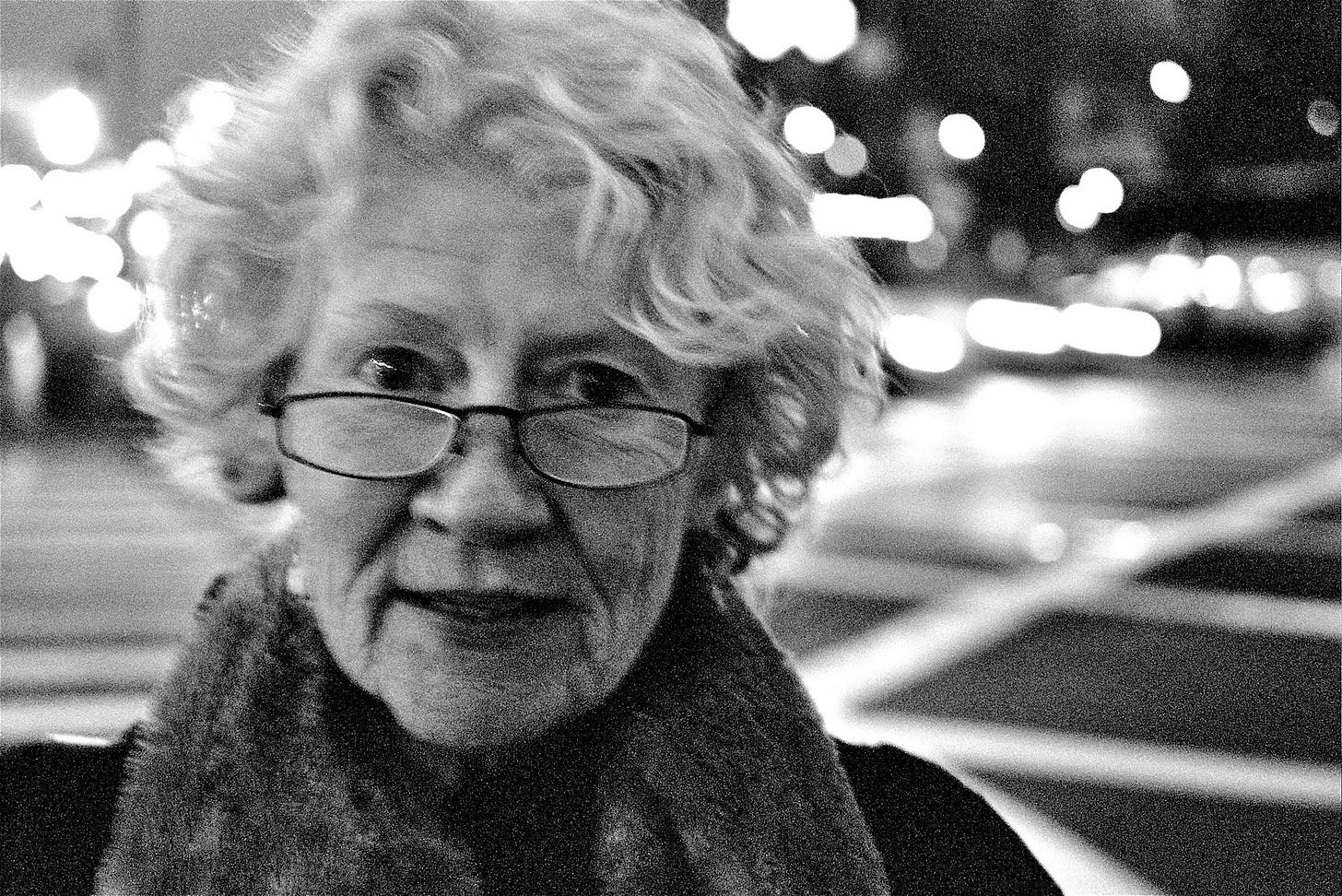Coming east we left the animals pelican beaver osprey muskrat and snake their hair and skin and feathers their eyes in the dark: red and green. Your finger drawing my mouth. Blessed are they who remember that what they now have they once longed for. A day a year ago last summer God filled me with himself, like gold, inside, deeper inside than marrow. This close to God this close to you: walking into the river at Wolf with the animals. The snake's green skin, lit from inside. Our second life.
Jean Valentine holds a special place in my mental bookshelf. She was a poet who truly never gave a flying fuck about fitting into any particular school or trend. She lived in the ambiguity of poetry so artfully, it’s a shame she wasn’t more popular. When asked about this fact during an interview for the Poetry Society of America she said, “It was just the only thing I could do. I did often wish I could do something more popular, but I can't. […] it would be fun to be popular.” I hope eventually her work is celebrated appropriately, though she is no longer around to enjoy the fun.
This poem is pure free verse. 4 stanzas. The first stanza features only three punctuation marks, despite needing more. This absence gives a sense of delirium. A sort of droning without a clear end in sight. The animals blend as our memories might blend the encounters and remove distinguishing features. The same kind of melding happens in noting “their hair and skin and feathers / their eyes in the dark,” the characteristics of each animal seem to combine into some sort of horrific mass of flesh. Our reprieve comes in the form of a colon. Here we are given some detail and distinction. The eyeshine stops us in the sentence the way it would stop us in our tracks as we walk through a dark path at night.
This stop allows the next line to really sink in. The speaker is no longer detailing the world around them, but instead introduces our other person through their touch. Ending the stanza with this sensory detail almost leads the reader to feel the finger themselves.
The second stanza, an italicized nugget of wisdom, helps us to understand the setting the speaker is presenting: a memory to help them rediscover the connection to someone.
The third stanza starts with the same lack of punctuation, resulting in the same foggy sense of memory. “God filled me with himself, like gold, inside / deeper than the marrow.” Whether or not you are religious, the notion of being filled is pretty clear. It is the idea of complete satisfaction and completeness. To be filled is to want for nothing. This is a memory of fulfillment. The reader is given the chance to breathe after this stanza so that they can fill in their memory of the same. It is a chance to relate with the speaker and fill the ambiguity with pure feeling.
If it wasn’t clear, the speaker draws the parallel using the same blending technique found earlier in the piece. This time, she is tying together the sensation of spiritual contentment with being with the person.
In the end, the speaker returns us to the water. All of the animals, it is now clear, were animals tied to water. Snake is the obvious exception, being a much larger and diverse group. As if catching the fact, the speaker brings us back to the snake. She gives it magical qualities, echoing the image of the green eyeshine but now that light originates from within the snake itself.
The poem’s parting line is tacked on to the end like a quick thought. “Our second life.” What is our second life? Is it this memory? Is it the current world, which seems so far away from the memory? Perhaps second life refers to the life you build with someone, distinct in so many ways from the life before a shared existence. There is single life and married life. Or single life and relationship life. They are separated by moments like the one the speaker has brought us through for the entire poem, moments of connection and satisfaction. Moments when everything begins to blend.






Valentine's signature style is my center land. Love her spare yet bold diction and imagery. Thank you for sharing this, Mike.
What a wonderful poem, and what a thoughtful reflection on how it is made and what it contains. I know I picked up a secondhand copy of her poems in Provincetown a few years ago. I am now going to look for it!